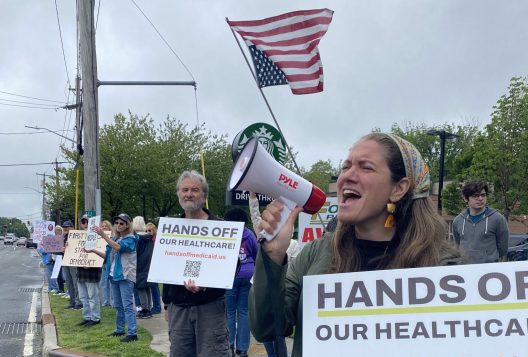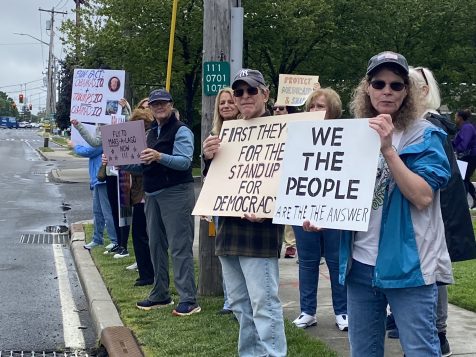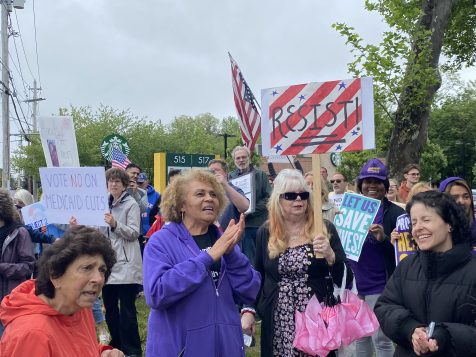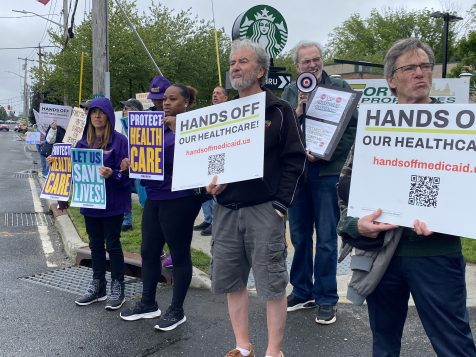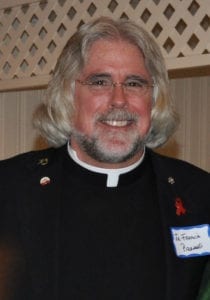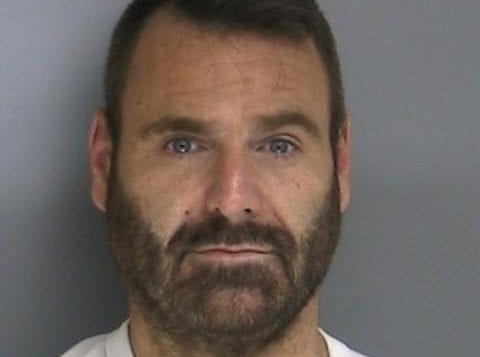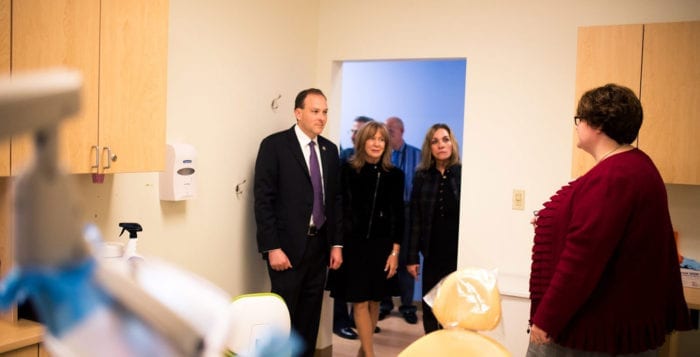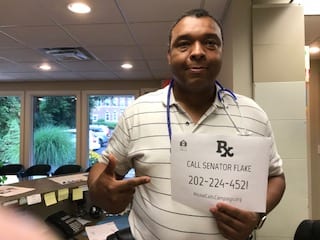By William Stieglitz
On Thursday, May 29, close to 100 people lined the streets outside Congressman Nick LaLota’s (R, NY1) Hauppauge office to protest planned cuts to Medicaid and other health programs under the One Big Beautiful reconciliation bill, passed by the House of Representatives the week before.
The rally’s speakers included grassroots organizers and health care workers, who argued that the bill LaLota voted for would cut health care funding for Long Islanders while giving tax breaks to billionaires. “The budget is a gift to the rich and a slap in the face to workers,” said Diane Cantave from Long Island Jobs with Justice. “We reject the idea that working families must carry the burden while the wealthy hoard more.”
The bill would place restrictions on Medicaid, including new work requirements to qualify, as well as on the SNAP and CHIP programs for food stamps and children’s health insurance. It would also reduce Medicaid funding by 10% to states like New York that provide health coverage to undocumented immigrants.
Dr. Eve Krief, speaking on behalf of Engage Long Island and the American Academy of Pediatrics, warned the bill would result in “tens of thousands of people right here on Long Island” losing their health care. “It’s going to raise our premiums regardless of what insurance you have, because hospitals are gonna be forced to provide uncompensated care to the uninsured… It’s gonna strain our hospital systems to the breaking point. They’re gonna be forced to cut staffing, and eventually, they’re gonna have to close their doors.”
Responding later, LaLota said, “You’re not gonna find anywhere that there’s a Medicaid cut” in the bill, describing the legislation as a commitment to Bill Clinton-era work requirements. “The main part of what this bill did was requiring able-bodied adults, so not pregnant women, not disabled people, not seniors… able-bodied adults to work or seek work for eighty hours a month. That burden is not too large to ask your neighbors to pay for your health care.” The other major aspect of the bill, he said, is that it will “check everybody’s qualifications” for Medicaid, and in doing so, “root out the waste, fraud and abuse in the system.”
However, Planned Parenthood Coordinator Kaitlyn Pawlukojc argued that the bill would also bar Medicaid funding toward Planned Parenthood so long as it provides its current abortions services. “Last year, Planned Parenthood Hudson Peconic completed over 19,500 visits for Suffolk County residents,” she said, “providing vital health care like birth control, STI testing and treatment, and cancer screenings.” She added defunding Planned Parenthood would cost taxpayers “nearly 300 million dollars,” referencing the Congressional Budget Office estimates.
A further concern, touched on by Gender Equality New York Executive Director Juli Grey-Owens, is how the bill could threaten gender-affirming care for transgender youth. “For many, transitioning is crucial to continuing to live,” she said, adding that the surgery is a medical need for trans people suffering from gender dysphoria, and reduces suicide and depression. “We do not ask for special treatment. We ask to live safely, truthfully, and equally.” LaLota, when asked about the bill’s blocking of funds for gender-affirming care, stated, “I do not support using federal taxpayer dollars for transgender surgery.” Jennifer Capotorto, a local mother of two, said she worried about her children losing access to health care, as well as the impact for the rest of her family. “My sister will no longer be able to afford her rheumatoid arthritis medication and will live in chronic pain. In February, we lost our Navy vet father, and he suffered for months before his passing in a for-profit rehab that was neglecting him simply because they were understaffed.”
The bill also brings back SALT deductions, quadrupling the current $10,000 cap to $40,000, something many Long Islanders have argued for.
However, Suffolk Progressives founder Shoshana Hershkowitz said she does not support “gutting Medicaid” in exchange. “We can actually get our SALT deductions back, all they have to do is let the first Trump tax cuts expire.” Following the speeches, she and others marched to drop off letters to the congressman, also leaving salt packets while saying “Keep your SALT.” While the last group of people were dropping off letters, LaLota was walking to his office and spoke briefly with the group in defense of the bill before going inside.
These are arguments Krief touched on when she spoke, but claimed they were misleading. “The overwhelming majority of people on Medicaid do work,” she said. “So we’ll have these funding cuts without the actual [removal of] waste, fraud and abuse to make up for those cuts, which will then impact us all.”
The reconciliation bill now goes to the Senate, where it awaits its next vote.

